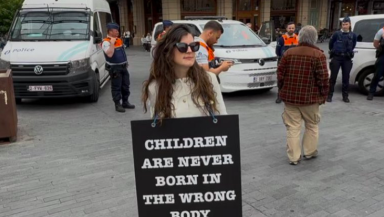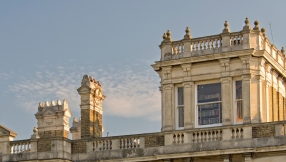
Should free trade be conditional on free speech? That is the question posed by Lois McLatchie Miller, a senior legal communications officer at Christian advocacy group ADF International.
Writing for the Daily Wire, McLatchie Miller lamented the decline of free speech in Britain and in her own native Scotland, where US President Donald Trump recently spent a working holiday. There, in between rounds of golf, he managed to agree a trade deal with the EU and met with British Prime Minister Keir Starmer.
McLatchie Miller noted that at present around 30 people in Britain are arrested every day for online posts, a figure that is believed to be well above the average for a developed Western nation and may even be higher than supposedly more authoritarian countries like Russia.
She particularly took aim at Scotland’s Hate Crime and Public Order Act, passed in April last year. Under the law, speech “stirring up hatred” is now an offence that could potentially land someone in prison for up to seven years. It is possible to fall foul of the law even if no offence against anyone was intended.
Of equal concern is the introduction of “buffer zones” around abortion clinics. While these have sprung up all over the country, it is again in Scotland that the most draconian form of censorship has emerged.
One 62-year-old woman, Livia Tossici-Bolt was arrested for standing in an abortion clinic buffer zone with a sign that said “Here to talk, if you want”. The Member of the Scottish Parliament behind the law, Gillian Mackay, has said that even praying by the window inside one’s own home could be illegal within a buffer zone, “depending on who’s passing the window”.
McLatchie suggested that this concerning decline in free speech called into question Britain’s suitability as an ally and trading partner of the US.
“The UK cannot credibly advocate for open markets while tolerating closed discourse," she said.
"A nation cannot speak loudly on the world stage while silencing its citizens at home.
"If Britain wishes to remain a trusted partner in the transatlantic alliance — not just economically but morally — it must reaffirm its commitment to the freedoms that define liberal democracy.”













